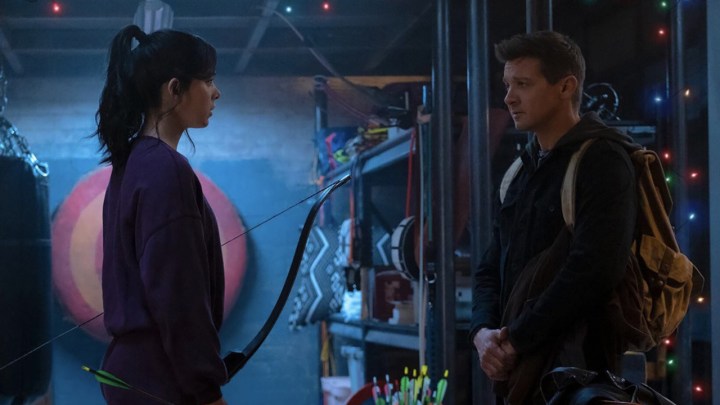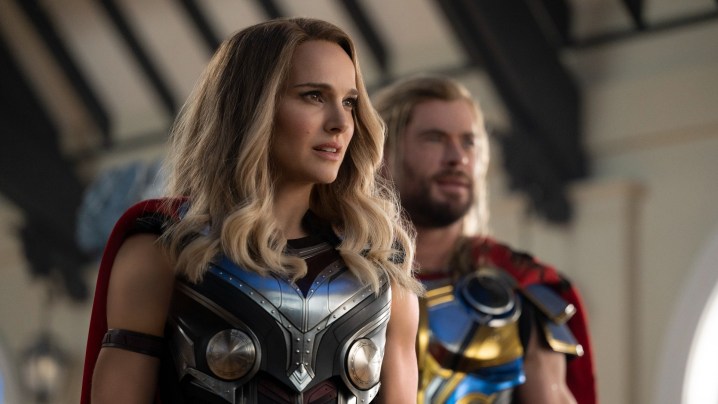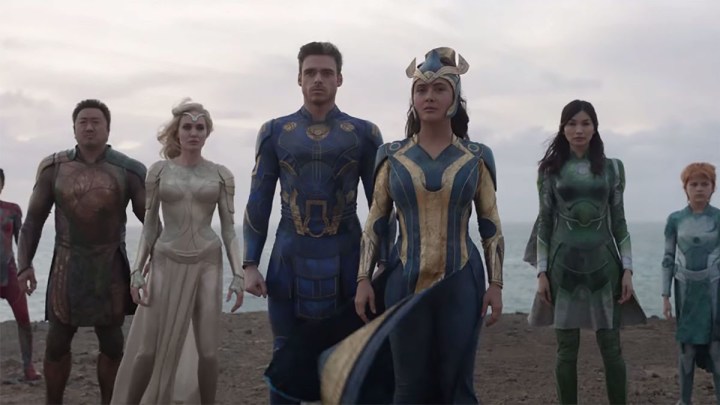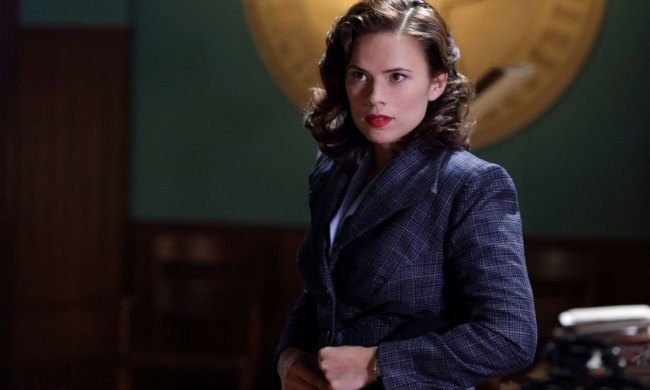The summer of 2019 delivered what remains arguably the cinematic event of the millennial generation. Avengers: Endgame was the culmination of 11 years of world-building and 22 films, and audiences ate it up like a big, fat turkey on Thanksgiving Day. The Marvel Cinematic Universe pulled a feat no other franchise had, before or since, delivering spectacular thrills and unforgettable moments while tying all its loose ends in a messy but still attractive bow.
It wouldn’t be an overstatement to call Endgame the event of a lifetime, even if the declaration would make some film purists cringe. The film was the perfect representation of the MCU’s brand, a collection of jokes, characters, and stories so ambitious and, dare we say it, daring that they changed the way we consume cinema. The film, and the entire MCU concept, was an undertaking of Herculean proportions, and it was successfully pulled off, dazzling audiences and leaving them in shock and awe at the overindulgence they witnessed on the big screen.
The post-Endgame landscape, however, is drastically different. Perhaps it’s the pandemic that made us more cynical and unforgiving, or perhaps it’s Marvel’s previously impervious charm finally wearing off. Or maybe it’s the studio’s considerable pride setting all this up. However, the MCU is now looking uglier and more tiresome than ever. Like the once-delicious meal that becomes tasteless after eating it one too many times, the massive franchise is now lifeless, soulless, and worst of all, boring. Gone are the thrills and surprises that built the Marvel legend, replaced with constant cameos and increasingly forgettable post-credit scenes meant to set up the next chapter in a seemingly endless book.
M(eh)CU

The post-Endgame landscape is making audiences feel restless. Marvel’s once united fan base is now split down the middle, with those savagely defending it against any form of criticism on one side and those who feel betrayed by the once-mighty franchise on the other. Phase 4’s projects have been divisive and uneven; critics are now less willing to overlook Marvel’s mistakes because they are more glaring than ever, flaunting themselves in our faces as if daring us to call them out. And call them out we have.
The studio’s most recent effort, Thor: Love and Thunder, received mixed reviews, just like Eternals, Doctor Strange in the Multiverse of Madness, and Black Widow before it. Indeed, a quick look at the consensus of these films on Rotten Tomatoes will reveal that critics are bored to the point of disinterest. Their reviews will always say something like, “yes, this movie is ‘meh,’ but it’s OK for the MCU, I guess.”
Critics are now judging these projects not as individual achievements, but as cogs within a larger machine. They aren’t singular or even distinguishable from one another; indeed, they are sentences meant to build a paragraph, which will then make a page, and so on. So it’s not a matter of whether Doctor Strange in the Multiverse of Madness is enjoyable in and of itself, but rather if it’s successful in setting up the Young Avengers or not. Fans and even certain critics love saying how the MCU built its success on its ability to create one continuous story and keep its audiences invested. But that formula can only last for so long, and it’s already straining, especially after the introduction of the Disney+ shows.
How streaming accelerated the MCU’s fall from grace

There’s a strong case for how the Disney+ shows and their arrival accelerated the MCU’s decline. At first, the idea seemed genius: six-hour stories focusing on underrated yet crucial characters sidelined in the movies? Shut up and take our money! But when they finally arrived, we saw them for what they were: tiny cogs to accompany the larger cogs in this ever-spinning factory.
Marvel and Disney never had any desire to explore or develop these characters. It can be argued that WandaVision‘s main purpose was to introduce two of the Young Avengers (Wiccan and Speed) and set up Wanda for the Multiverse of Madness. Similarly, The Falcon and the Winter Soldier existed to turn Sam into the new Cap for Captain America 4,while Loki‘s duty was to establish Kang as a bad guy for Ant-Man 3 and solidify the multiverse in the MCU. Hawkeye and What/If had no real purpose, which is why no one remembers them. Moon Knight was deliberately set apart from other Marvel projects, with no gratuitous references or setups, but failed to really make the character memorable.
Two-and-a-half-hour films whose only purpose is to have a 20-second post-credit scene is one thing. It’s not ideal, but people are somewhat used to it. However, they aren’t willing to spend eight hours on a rambling story and receive only a measly post-credit scene in return. Marvel should’ve known better than trying to replicate its supposedly surefire formula on the small screen. Television and film are different mediums, and what works on one won’t work on the other; the fact that this needs to be said is outright ridiculous.
By introducing its streaming content, the MCU drove itself into a trap from which there’s no gettiing out. It tried to cut corners and replicate its big-screen success on the small screen without putting in the work or trying to create content suited for this new medium. In short, it became its worst enemy; it became the DCEU.
In the notorious and still-divisive Batman v Superman: Dawn of Justice, Zack Snyder famously introduced three Justice League members via 10-second videos from security camera footage. The scenes were clumsy, rushed, superficial, and arguably laughable, and critics and fans responded accordingly. Was this the way the DCEU planned to introduce its Justice League? Whereas the MCU spent the time introducing each prominent Avenger character via a standalone project — or, in Black Widow’s case, by sticking her in every Captain America film — the DCEU built its Justice League via security footage. Fans sneered at the DCEU, ridiculing it and putting Marvel on a pedestal, praising it for taking years to build its universe.
Cut to six years later, and Marvel did the same as the DCEU — and the result was the same. Oh, how the mighty have fallen.
Wake up, the audience is leaving

Nearly 15 years after its inception, the MCU is already in its midlife crisis, and we can tell. It no longer seems to have a set purpose or even a clear path. Instead, it seems like it’s throwing a bunch of ideas at the wall and seeing what sticks — another thing is has in common with the DCEU. It’s bringing auteurs to direct some of its major blockbusters yet stifling their efforts and limiting their visions, resulting in Frankenstein films that please no one. The MCU is also doubling down on its most divisive element — humor — to the delight of some and the enraged annoyance of others.
However, its most egregious mistake is how ugly its movies look nowadays. The VFX teams have openly expressed their dislike for Marvel, calling them the “worst” client to work for and openly criticizing their tight schedules and demanding and unrealistic expectations. Overworked, overstressed, underpaid artists are rushing against the clock to finish the VFX for the latest MCU project and delivering subpar results, but who can blame them? Overworked, overstressed, underpaid workers can only do so much when everything is working against them. And it’s not like the Marvel team has their back; on the contrary, they’re the first ones to go to Vanity Fair and throw them under the bus for cheap laughs.
These days, that’s all the MCU is: cheap laughs, cheap plots, cheap VFX shots, and cheap thrills. How can a film with a $200 million budget come out cheap? In some ways, Marvel is still a trailblazer. But audiences are tired of cheap products and can no longer ignore or contain their unhappiness. What was once the happiest fandom on the internet has become bitter and angry, raising their voice to complain about these films that no longer seem impressive or striking. How long before they start avoiding them entirely?
To be fair, it’s not like the MCU is struggling box-office-wise. Thor: Love and Thunder dominated the weekend, raising $302 million worldwide, while Doctor Strange in the Multiverse of Madness is nearing the $1 billion mark. Audiences still like their Marvel content; they just don’t love it anymore. Once, it was unimaginable to think fans might not be excited about the next MCU project; nowadays, it’s happening before our eyes. Is it so ridiculous to think the MCU’s glory days are behind it?
Evolve or perish

The MCU is at a crossroads. Its charms are wearing off fast, but it doesn’t seem anywhere near done; recently, Marvel President Kevin Feige and his team went on a retreat to plan the next 10 years of MCU content. To be clear, it’s not like the MCU can’t continue; it can and most definitely will. What’s at stake here is its reputation as a cinematic milestone and game-changing franchise. We are talking about the battle for the soul of the MCU, or at least whatever’s left of it.
The franchise’s problems become especially glaring as it reaches the lower tier of its catalog of characters and starts greenlighting projects for Werewolf by Night and Nova. True, the MCU has turned nobodies into somebodies before; Iron Man and Star-Lord were C-list characters before Feige and company turned them into superstars capable of anchoring their own blockbuster trilogies. However, the MCU was still exciting in 2008 and 2014; it was full of promise and originality and had audiences eating from the palm of its massive hand.
That’s the issue here: the MCU is no longer exciting. After a series of disappointing shows and films, can we honestly say we are looking forward to She-Hulk’s debut? How about Echo or Ironheart, or any of the other Disney+ shows that are coming in the near future? Heck, Hercules debuts during Thor: Love and Thunder‘s midcredit scene, and the internet is as silent as Black Bolt. Does anyone even remember Black Bolt? He made his MCU debut in Doctor Strange in the Multiverse of Madness, a film that premiered just two months ago and already seems forgotten about despite the massive prerelease hype.
Hardcore fans know Phase 4 is building toward the Secret Wars storyline, an event that pits multiple versions of multiple characters in a Super Smash Bros.-style tournament. But whereas the comic book storyline was a character study of the rivalry between two of Marvel’s most intriguing and complicated figures, Mr. Fantastic and Doctor Doom, the MCU’s version will probably be a collection of cameos held together by a sorry excuse for a storyline and some very dirty-looking scenes.
It’s hard being excited about something when we know it might be awful. The MCU once trained us to expect wonder and spectacle from its films. Now, it’s training us to expect fan service and increasingly stupid jokes about how absurd everyone’s superhero cod ename is. What was once a promise now seems like a warning: “the next film will be just as bad, you just wait and see!” Marvel must stop half-assing its films and shows and start living up to its reputation as a game-changer. Otherwise, the same audience that once put it on a pedestal will tear its altar down with their bare hands. Because one thing’s for sure: there’s nothing people love more than ripping a fallen idol apart.



